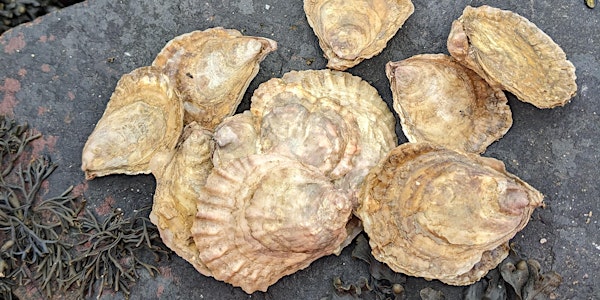
Native Oyster Biosecurity for DEEP - Heriot-Watt University
Come and help us process native oysters to be reintroduced into the Dornoch Firth.
Date and time
Location
Heriot-Watt University Edinburgh Campus
Heriot-Watt University Edinburgh Campus Edinburgh EH14 4AS United KingdomAbout this event
- 6 hours
We are delighted to invite you to join us as we prepare native oysters for restoration in the Dornoch Firth as part of the award-wining Dornoch Environmental Enhancement Project (DEEP).
The oysters, collected by the team from a nursery facility in Scotland, will have undergone the first stages of the biosecurity process and we are inviting you to get involved in the final stages of this process. By getting involved you will gain practical training in the processes of biosecurity necessary for the movement of native oysters into a restoration site.
This event is suitable for over 18’s only and not recommended for anyone with a shellfish allergy or repetitive strain injury - please see the important information at the end and get in touch if you have any questions.
Where
- Please meet us at Heriot Watt University Edinburgh campus - Students Union at 10am (what3words: tame.lower.combining). A member of staff will be there to meet you and walk you to the John Muir Yard, where the session will be taking place.
- Free parking is available in Car Park A (what3words: orders.solve.branch).
- There are regular buses from the city of Edinburgh to campus.
About biosecurity
When moving a species between two geographically distinct environments, we have to prevent the spread of invasive non-native species and disease, this is referred to as biosecurity.
The biosecurity protocol includes the screening and removal of any attached biota (plants and animals) which pose a contamination risk both at the collection site and at Heriot Watt University campus. Once checked and cleaned the oysters undergo surface sterilisation before being sorted and counted then placed into clean aquarium tanks where they remain before they can be released into the Dornoch Firth.
IMPORTANT INFORMATION
We will be working outside in potentially chilly conditions during the practical session, so please wear clothes which you are comfortable and warm in (jumpers, hats, gloves, scarfs etc.) and with the possibility of rain, please also bring waterproofs.
Personal protective equipment will be provided such as aprons and work gloves, but please wear something comfortable which you don’t mind getting dirty.
The process of removing attached animals from the oysters and cleaning them can involve repetitive movement and the possibility of working in unfavourable weather conditions so please be aware of this when signing up. We would not advise taking part in this activity if you have a shellfish allergy or a severe repetitive strain injury.
On campus there are cafeteria and shop facilities if attendees wish to buy any refreshments.
If you have any questions about this or want to discuss accessibility arrangements please don’t hesitate to contact us at the email address below:
G.Ramday@hw.ac.uk